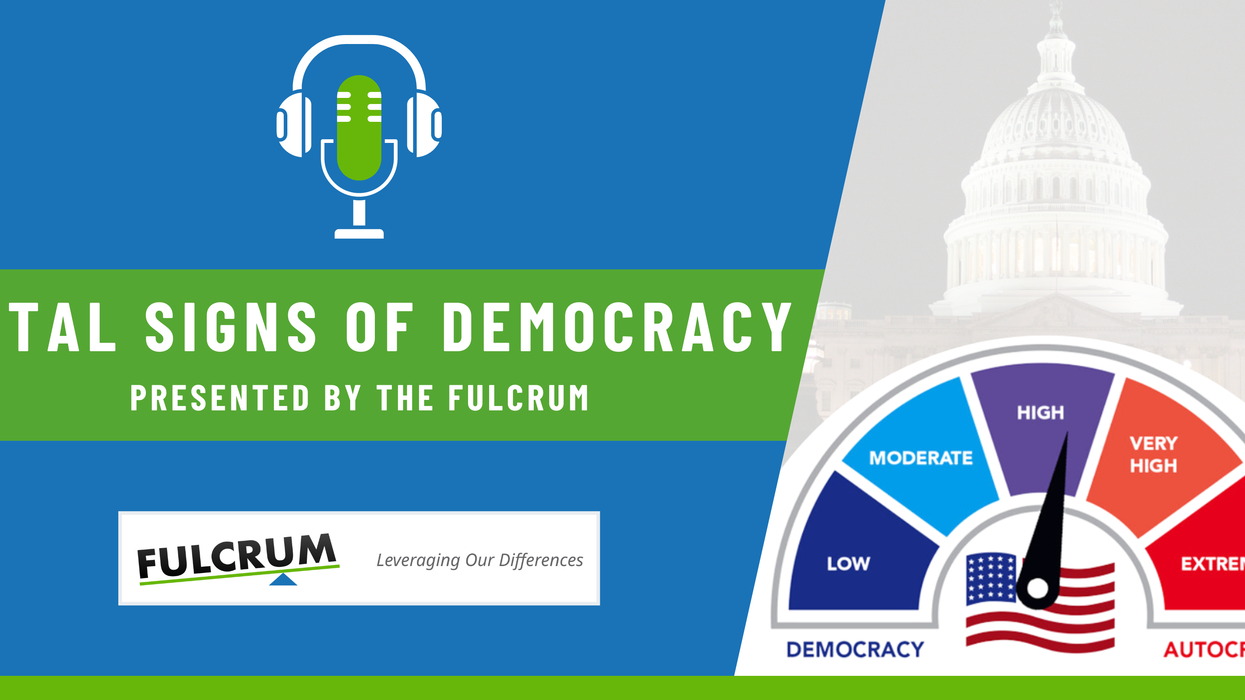Every story we hear on the news, online or in a meme about government and our fellow citizens will become the future we create. That's what Vital Signs of Democracy is -- a quick score to let us assess how we in the USA are weakening or strengthening our collective story about our democratic republic. Are we telling stories that support autocracy? Or democracy? Our podcast is an overview of the latest competing narratives for the future of our nation. We will explore how the latest news impacts the score. We'll end each episode with stories we've found that tell a better story for us to consider.
In this extended, inaugural episode, we outline what Vital Signs of Democracy is, and examine how the news, in aggregate, tells us a story about the future of our democratic republic, or democracy for short. Included in this episode is an overview of the two primary "Make America Great" stories that are competing for our attention. One is the MAGA story or returning to a nostalgic past. The other story to make America great is to advance to a multicultural, pluralistic society. Each of these stories demonize the people who prefer the other story. We include commentary about corporate media, social media, the issues used to divide us to profit (for media) or to motivate voters issue by issues. Listen to this episode and find a new way to think about the news.




















